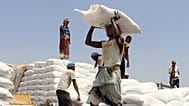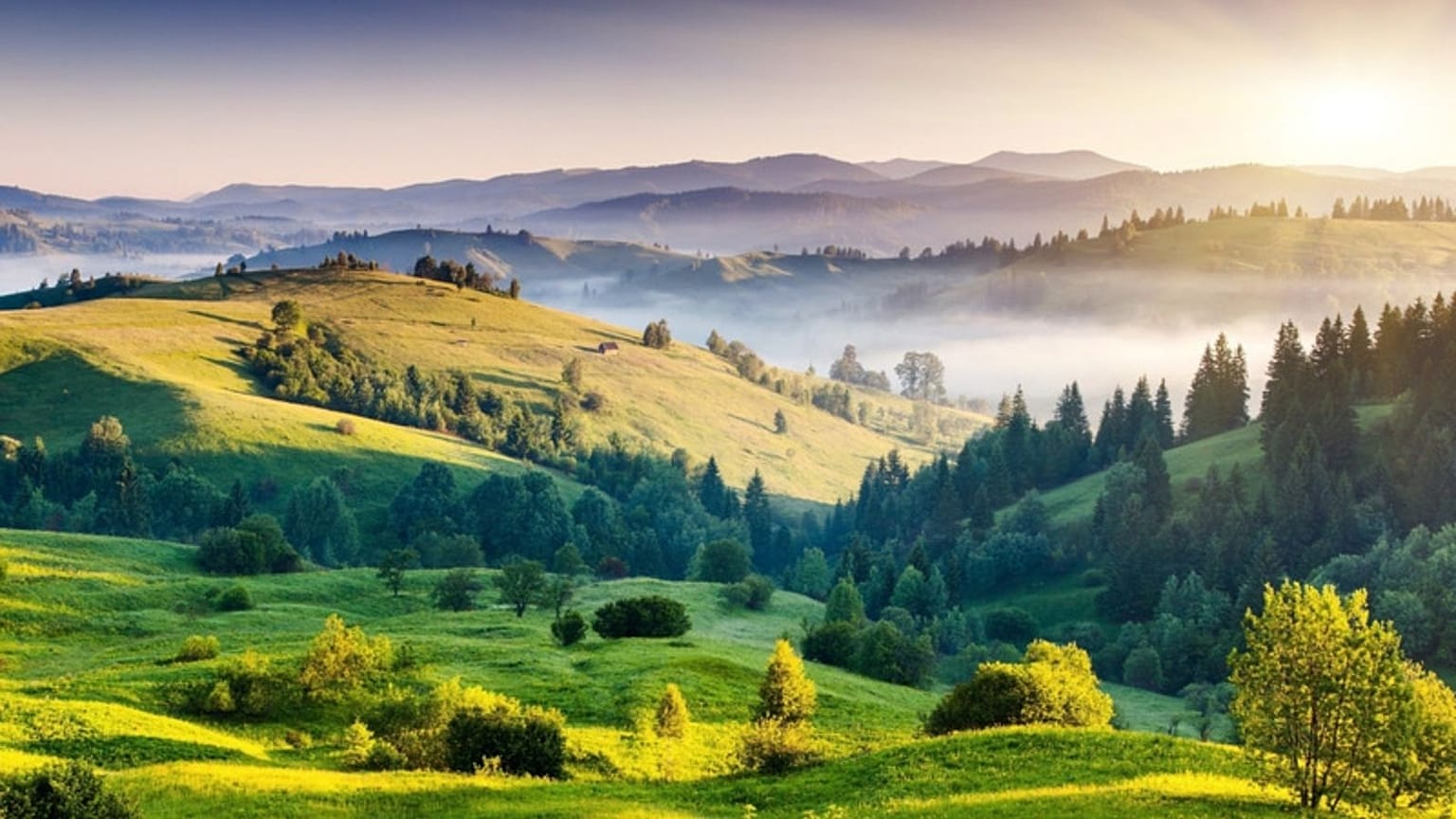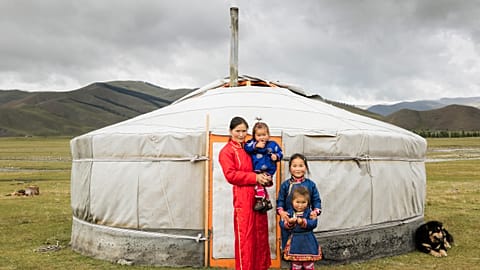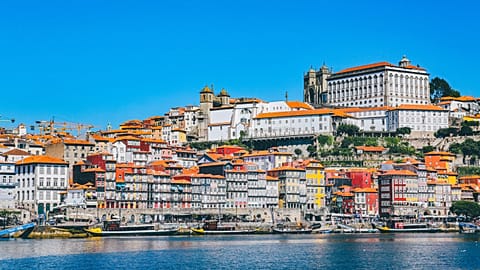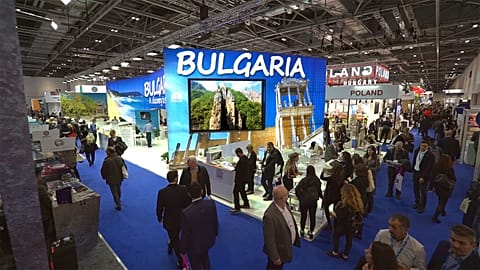This year, India stood out to judges of the World Travel Market Awards as the leading country for Responsible Tourism.
India has been singled out as the leading country for Responsible Tourism at the WTM Responsible Tourism Awards. Launched in 2004, the event recognises and rewards businesses and destinations which are contributing to a more sustainable tourism industry.
Organisers noted that in 2008, the southwestern coastal state of Kerala led the way when it hosted the 2nd International Conference on Responsible Tourism in Destinations. From this, the Responsible Tourism Mission was born and rolled out across Kerala. Its benefits were soon recognised by other states in India.
The 2021 Global Award winners were selected from the Best of India and the Rest of the World Awards along with the best entries from Africa and Latin America.
Decarbonising travel & tourism
Govardhan Village is a 100-acre retreat centre and model farm community in Maharashtra, India. The campus provides residential conferences and study programmes, attracting 50,000 tourists a year. It avoids emissions through solar panels which deliver almost 185,000 units of electricity annually.
Cow dung and other wet waste are converted into electricity, while plastic waste is converted into both light diesel oil and electricity. The site also uses Soil Bio-Technology to process sewage into greywater for irrigation, so there is no need to pump water from the river.
Buildings on the campus are built from compressed stabilised earth blocks (DSEB) which use less energy, and all materials are sourced from within 100km to reduce carbon emissions from transport.
Sustaining employees and communities through the pandemic
The V&A Waterfront in Cape Town's harbour is a mixed-use destination, built to benefit those who would otherwise be excluded and marginalised.
It continued to successfully grow employment at 3.7 per cent annually, throughout the pandemic. In December 2020, as cases soared, they launched Makers Landing, a food community that celebrates South Africa's diverse cultures through food.
The site has a shared incubator kitchen, a demo kitchen, eight maker production stations, a food market with approximately 35 flexible market stands, eight small co-op eateries and five anchor restaurants of various sizes.
As well as supporting early-stage entrepreneurs, it has provided grants for mentorship and coaching programmes, raised working capital to support businesses and create jobs.
From their urban garden, they have provided Ladies of Love, an inner-city food program that provides meals to destitute people, with just under 6 tons of vegetables. This provided 130,000 meals to the local community over two years.
Destinations building back better after COVID-19
The Madhya Pradesh Tourism Board's Rural Tourism Programme was also recognised in the awards. Particularly for how it has learnt from the Responsible Tourism Mission in Kerala, which has helped it grow its impact on rural communities.
The program, implemented in 100 villages over three years, gives tourists an authentic rural experience through activities like bullock cart rides, farming and homestays. This helps to generate employment and alternative business opportunities for rural communities.
The project provides need-based training on homestay operations, cooking, health and hygiene, book-keeping and accounting, among others. At its heart, is a commitment to inclusion and engagement, irrespective of social and economic status.
Increasing diversity in tourism: How inclusive is the industry?
No Footprints, based in Mumbai, India, enables visitors to connect with the communities which have made the city what it is over generations. It provides opportunities to meet with Parsees, Bohris, East Indians and the queer community and hear their stories.
Over the last six years, No Footprints has curated 22 different niche travel experiences in Mumbai and the company are now expanding to Delhi. Their goal is to introduce travellers to the history, culture, and diverse peoples of the cities they represent.
Among their most popular tours are Mumbai at dawn, Worli Fishing Village, a Colonial Walk and their innovative tour designed to tickle the five senses, which includes a tour of a spice market.They also offer art and cookery workshops, a heritage cycle tour and a chance to experience the excitement of cricket.
The "No Footprints' Queer's Day Out includes a visit to the temple of a goddess worshipped by traditional transgender communities, creating a space for conversations about cruising, Grindr, Pride and drag.
The tour is led and curated by individuals from the Queer community, to help ensure authenticity and enable tourists to gain an insight into the Queer culture of the city.
Reducing Plastic Waste in the Environment
The Six Senses Resort on The Maldivian island of Laamu is determined to become plastic-free in 2022. This includes removing all front-of-house plastics and food packaging. One of their biggest challenges was the styrofoam boxes local fishing vessels were using to store their catch before bringing it to the resort.
Staff worked with packaging suppliers and local fishers and now have food delivered to the resort in cardboard boxes lined internally with panels made of hemp, jute, and wood fibres which are 100 per cent biodegradable and compostable.
The resort also desalinates seawater through reverse osmosis, followed by ultraviolet purification, making it suitable for showering and drinking. Their Leaf Garden provides 40 different herbs and greens, and the 'Kukulhu Village' provides eggs and chickens for their restaurants.
By harvesting supplies on the island, the resort is able to significantly reduce plastic food packaging. They also sell a plastic-free toolkit, which includes a reusable water bottle, reusable bag, bamboo toothbrush, and wooden pencils.
Guests can join a Sustainability Tour to see innovation and experimentation in action at their Earth Lab, a hub for self-sufficiency and zero waste.
Fifty per cent of water sales in all Six Senses restaurants help fund initiatives for clean, reliable drinking water for local communities in need and the resort has also conducted over 200 beach and reef cleans.
Growing the local economy for young people
Village Ways, based in Mumbai, invites guests to walk from village to village with a local guide, staying in purpose-built guesthouses which are owned, managed and staffed by the community.
Starting out in 2005 with five villages, they now work with 22 villages, providing employment opportunities for young people who might otherwise migrate to cities. Tourism income complements rather than replaces other income, so that households do not abandon traditional work such as farming.
They also promote gender equality and social inclusion. During the pandemic, Village Ways restructured their business and enhanced the skills of staff in their Mumbai office, to ensure the company would continue to grow in the pandemic.
When tourism stopped, Village Ways developed virtual tours with village communities, including cookery demonstrations, each attracting around 200 participants. They also closed their UK marketing office, choosing to focus on the Indian domestic market.


